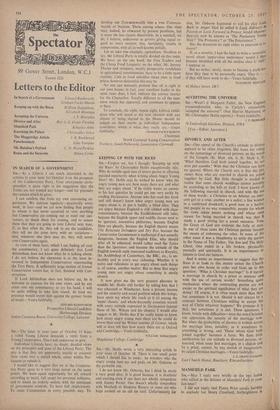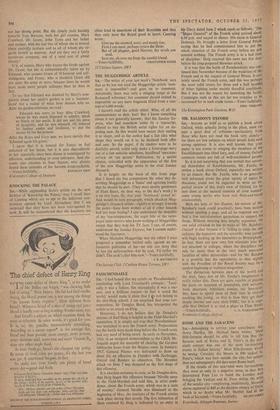S1R,—May I reply very briefly to the two ladies who
rallied to the defence of Mansfield Park in your last issue?
I did not imply that Fanny Price speaks harshly to anybody but Henry Crawford; forthrightness is not her strong point. But she clearly feels harshly towards Tom Bertram, both her girl cousins, Mary Crawford, Dr. Grant, John Yates and her father and mother, with the last two of whom she is several times uncivilly taciturn and to all of whom she re- gards herself as superior. And are they not a fairly numerous company, out of a total cast of about twenty?
It is, of course, Mary who begins the tirade against Dr. Grant, but she is enthusiastically taken up by Edmund, who accuses Grant of ill-humour and self- indulgence, and Fanny, who is thankful Grant did not enter the army or navy, because there he would have made more people unhappy than he does in fact.
To say that Edmund was shocked by Mary's com- plaints about her uncle's garden is not a 'misstate- ment' but a recital of what Jane Austen tells us. After the garden reference, we read : Edmund was sorry to hear Miss Crawford, whom he was much disposed to admire, speak so freely of her uncle. It did not suit his sense of propriety, and he was silenced, till induced by further smiles and liveliness, to put the matter by for the present.
After the Rears and Vices pun, we learn merely that 'Edmund again felt grave.'
I agree that it is natural for Fanny to feel ashamed of her home, but it is also discreditable to her, especially since here shame is unmitigated by affection, understanding or even tolerance. And dis- credit also attaches to Jane Austen, who plainly found these attitudes of her heroine irreproachable.



































 Previous page
Previous page